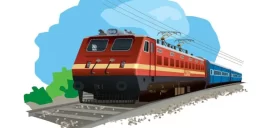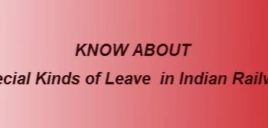The higher up the ranks your ancestor got, the easier it ought to be to find out about him. He would probably have had to join his relevant professional institution, and this will give you at the least dates of admission, promotion within the institution, possibly an article written by him, and an obituary. When searching for obituaries bear in mind that they often show up in an issue 2 or 3 months later. He may also get mentioned in the professional Railway Press.
Senior railway personnel are listed in the Biographical Directory of Railway Engineers (Marshall, Railway Canal and Historical Society, 2003, Oxford, ISBN 0901461229). Another book worth consulting is Was My Ancestor a Railwayman (out of print now but available second-hand). This covers railways of Africa and India.
The Public Records Office (National Archives) at Kew, London, has records of some foreign and colonial projects and many wartime and military records which may be relevant.
ये भी पढ़े – सिर्फ 4 घंटे में बन जाएगा पैन कार्ड, नहीं करना होगा 15 दिन इंतजार
The website and organization ancestry.co.uk has a searchable database of UK railway employment records, covering 1833 to 1963.
Persons employed by the government of India above a certain level will be mentioned in official dispatches or gazette notifications; a search of these and public records archives may help (in the UK for pre-1947, in India for post-1947 searches). Former railway employees are eligible for complimentary tickets and other benefits from Indian Railways, hence for persons employed in railways in India in this century it can be useful to check with the Personnel department of the appropriate zonal railway in India.
Staff posted at various railway stations will normally have their appointments and tenure recorded in the employment records of the concerned statiion, division, or zone. However, in the case of older material, it can be extremely difficult to find archived records — should they even exist — and only in rare cases will a persistent searcher be rewarded with access to such archives. Enquiries will have to be made in person at the stations and divisional / zonal headquarters. Divisional or zonal headquarter also normally have the records of projects undertaken under their jurisdiction; again, archives may not exist or it may be extremely hard to get access to them.
The Institution of Civil Engineers (UK) has published a book (a second one is also coming out) on the biographies of important civil engineers, including those of the 19th century (covering 1830 and later). These books may be of some use in locating material on those who worked as engineers, surveyors, architects, planners, foremen, etc., on railway projects in British India.
There is a mailing list, INDIA-L hosted at RootsWeb, for discussion and information about researching ancestry in India for those of European, British, or Anglo-Indian descent. Information about this mailing list, as well as other resources for tracing family history in India are available at the site on family history in India.
Another avenue of research is The Indiaman, a genealogical research organization aimed specifically at British persons whose ancestors had connections to India. They also have a quarterly magazine. Contact: Paul Rowland (editorial@indiaman.com). You can find additional useful links on their web site.
There is also The Society of Geneaologists in London. The society does not conduct research on behalf of non-members, but does make its library available to those who wish to use it for their own research.
Other useful avenues of research include issues of various directories and registers published in India at different times. The Oriental and India Office collections, the Humanities collections, and other collections of the British Library have issues of the Thacker’s Directories and other directories which contain data on appointments to the Government of India, official government directories for India and various provinces, mofussil directories, lists of European and Anglo-Indian residents, lists of “principal native inhabitants”, directories of merchants and firms operating in India, lists of scientific institutions, clubs, hospitals, and charitable groups.
The Railway Directory of India and maps of railways in India found in the Thacker’s Directories are particularly useful. There are many other regional and city-based registers, directories, almanacs, and calendars with useful information for tracking down appointments and postings of persons in various capacities.
See the RootsWeb page on India directories for a comprehensive list of resources of this kind.
Source – IFRCA.org

Disclaimer: The Information /News /Video provided in this Platform has been collected from different sources. We Believe that “Knowledge Is Power” and our aim is to create general awareness among people and make them powerful through easily accessible Information. NOTE: We do not take any responsibility of authenticity of Information/News/Videos.
This entry was posted in 2 Railway Employee, STUDY NEW, Railway Employee











